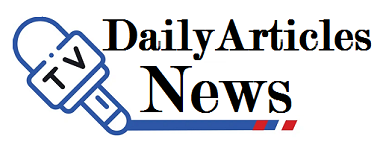The borrower needs to pay the loans with the principal amount and the loans’ interest amount. As the different lenders, they have additional terms & conditions regarding the loan repayments, the charges for the processing fees, and the interest being charged to the borrower. The loans can opt for a moratorium of up to 30 years. The borrower should read all the terms & conditions of the property documents before signing and moving ahead to process loans. The borrower should check with the RBI guidelines, rules & regulations before the approval of the loans. The interest rates being charged depend on the repo rate being charged by the borrower, according to which the lenders set the interest rates. When the repo rate increases, the interest being assigned to the borrower also increases. While as when the repo rate decreases, the interest being charged drops. The loans can be borrowed from any prominent lender which the borrower finds suitable. If the terms & conditions are not found to be ideal for the lender, then, in that case, the borrower can ask the lender to change the terms & conditions, failing which the borrower should check for another lender.
Before the approval of the loans, the borrower should verify the terms which the lender institution person must have committed verbally about are written on paper. The borrower should check with the competitive interest rates from the various lenders by checking from the website portals, which show the interest rates being charged by the lender. The borrowers need to know about the interest rates being charged, processing fees being set, and settlement dues, if any applicable, and also the late penalty charge being applicable. The borrower’s loan amount can be approved based on the applicant’s salary, while the interest rates being charged may also vary based on the CIBIL score of the borrower. The interest repayment is applicable based on the compound interest rates being charged to the borrower. It has a good CIBIL score, the borrower can negotiate the interest rates being charged by the borrower. The borrower should have a good, reliable, and consistent source of income to avail of the loans. Banks typically charge interest rates of 8-10% on the loans, and the females are given a concession of 0.50% to 0.25% on the interest repayment.
Table of Contents
Things to check before applying for multiple loans
The EMI’s which would be applicable for the loans:
The loans taken from the bank need to be repaid on time. The loan total EMI should be calculated and accordingly, the estimate of the payment capacity should be understood by the borrower, and accordingly, loans should have opted from the bank. The total EMI payment of the loans should not exceed 45-50% of the monthly salary. Thus while taking loans the borrower should take care that the EMI amount should not exceed the repayment capacity.
Credit score:
Availing excessive credits can lead to the borrower’s credit score getting reduced, as for the banks the risk of extending credits increases in case of the individuals obtaining excessive credits from the bank or an NBFC’s. The credit score helps an individual obtain loans on the basis of the score of an individual. Thus appropriate credit utilization should be done.
Tax benefits on the loans:
Tax benefits can be availed in the case of home loans and car loans. While tax benefits are not applicable on personal loans. The borrower can save a maximum of up to Rs2 lakh per annum while the in case of joint loans dual tax benefits can be taken beyond the tax exemption limit. But installment payment beyond the limit of Rs.2 lakh is not entitled to tax exemption. Thus paying excessive EMI’s does not benefit the borrowers.
Need for the loans:
If the borrower is already paying the home loan as well as the car loan then in that case it is recommended that the borrower should not obtain a personal loan additional to that. Thus the credits taken should not exceed extensively. Also in case of the existing EMI is running the borrower should take care that the credit card usage should not extend excessively. As excessive outstanding credits can hamper the credit score of an individual and also payment of excessive credits can create a problem for the borrowers.
The borrower should take care that the credits taken should not exceed beyond the repayment capacity. Also taking excessive loans can be of no use for the tax benefit beyond the tax limit. Also, the borrower should not take excessive credits as the CIBIL score may get affected, thus optimum credit utilization should be done.

